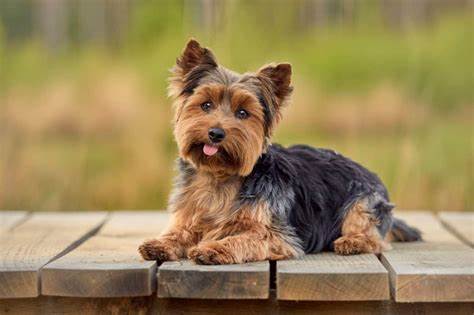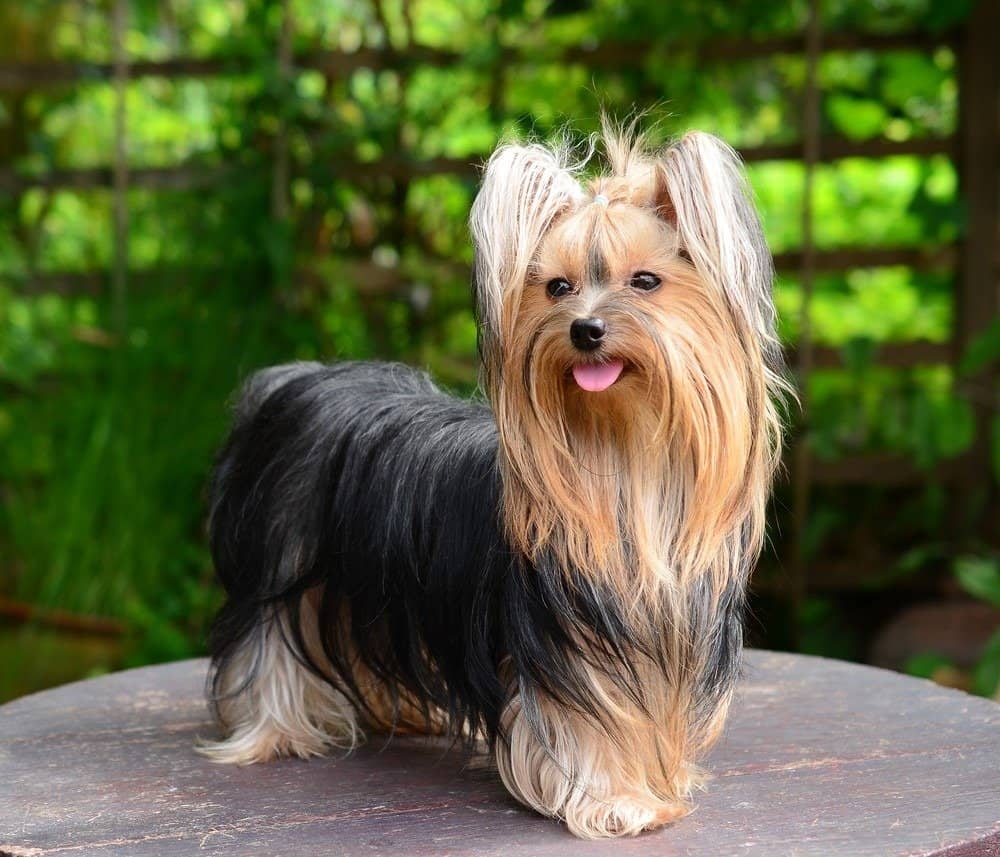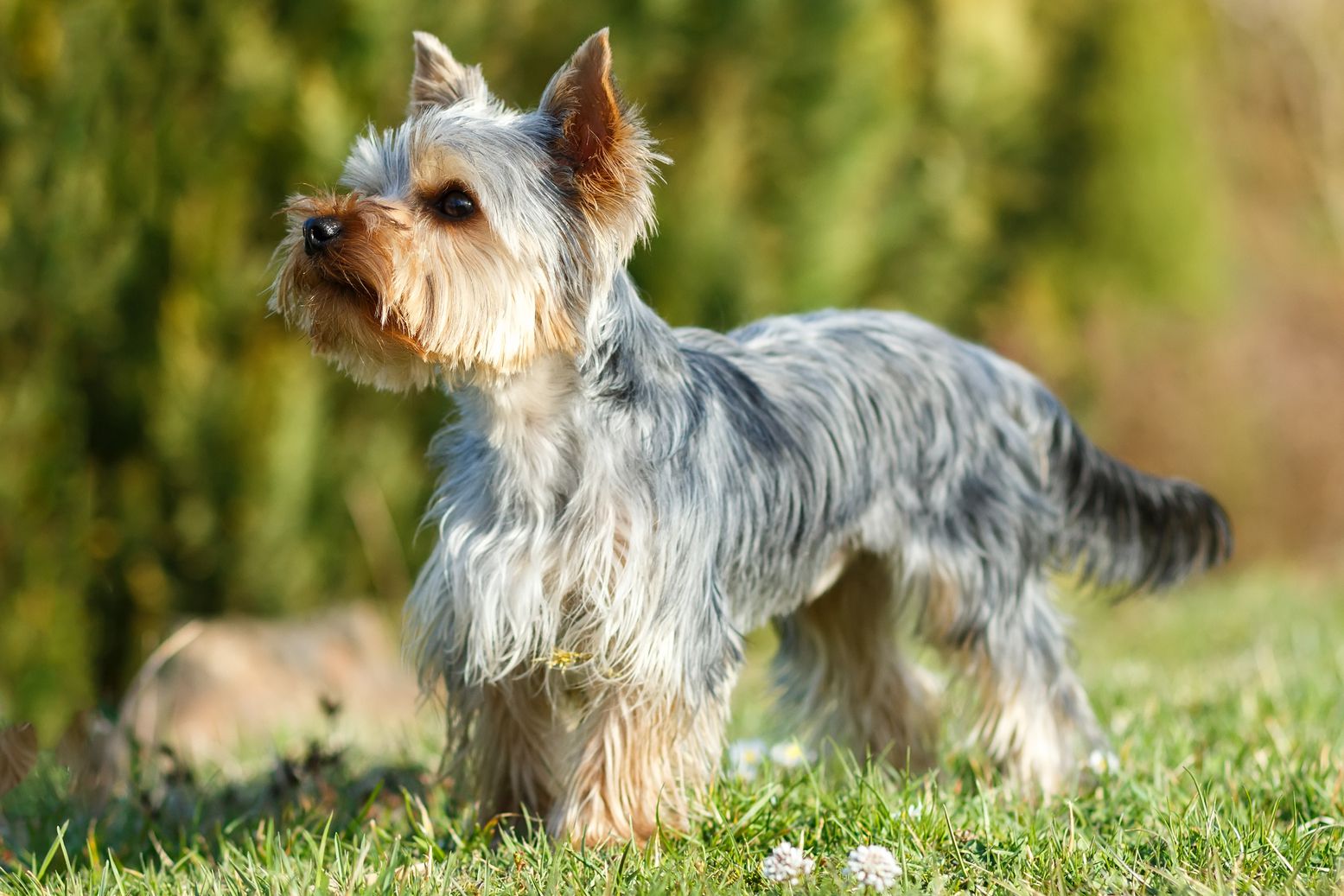
The Yorkshire Terrier, affectionately known as the Yorkie, hails from 19th-century England, specifically the county of Yorkshire. Developed by Scottish weavers who migrated south during the Industrial Revolution, the breed descended from small terriers like the Waterside Terrier, Paisley Terrier, and possibly the Clydesdale Terrier. These early terriers were used to hunt rats in textile mills and coal mines.
Over time, the Yorkie’s striking silky coat and petite size caught the attention of the upper classes, transforming it from a working-class ratter to a fashionable companion dog in Victorian society. The breed was formally recognized by the Kennel Club (UK) in 1886 and by the American Kennel Club (AKC) in 1885. Today, it is one of the world’s most beloved toy breeds.
The Yorkie has long been a favorite among urban dwellers, thanks to its compact size, glamorous appearance, and big-dog attitude. Consistently ranking among the top 15 most popular breeds in the U.S., it appeals to a wide audience—from celebrities to seniors—seeking a charming and portable companion.
Its versatility as both a lapdog and an alert watchdog cements its global popularity, particularly in cities where small, adaptable breeds thrive.
The Yorkie is a small but sturdy toy breed, exuding elegance and confidence.
• Height: 7–8 inches (18–20 cm)
• Weight: Ideally under 7 pounds (3.2 kg)
• Build: Compact, fine-boned, yet well-proportioned
• Coat: Long, silky, straight coat that parts down the middle of the back
• Color: Blue and tan (puppies are born black and tan; coat lightens with age)
• Head: Small and flat with a medium muzzle
• Ears: Small, V-shaped, erect
• Eyes: Medium-sized, dark, with an intelligent expression
• Tail: Traditionally docked (where permitted), carried slightly higher than the back
The Yorkshire Terrier is bold, affectionate, and lively, often unaware of its small stature.
• Courageous and spirited: Fearless and assertive, with terrier tenacity
• Affectionate and loyal: Forms deep bonds with owners; thrives on attention
• Alert and vocal: Makes an excellent watchdog despite its size
• Playful and energetic: Enjoys interactive games and mental stimulation
• Independent yet eager to please: Can have a stubborn streak but responds well to positive training

This breed is ideal for:
• City dwellers wanting a portable and adaptable companion
• Families or individuals seeking an affectionate lapdog
• Owners who enjoy grooming and styling their dog’s luxurious coat
• People looking for a small dog with a big personality
It may not suit:
• Households with very young children (due to fragile size)
• Those seeking a low-maintenance grooming routine
• Owners unprepared for a vocal watchdog
Despite its small size, the Yorkie requires thoughtful care and regular maintenance.
• Exercise: Moderate; short daily walks and indoor play suffice
• Training: Early socialization and gentle, consistent training important
• Grooming:
o Daily brushing to prevent tangles and matting (especially with a long coat)
o Regular bathing and trimming (many opt for a “puppy cut” for easier maintenance)
o Dental hygiene is crucial due to predisposition to dental issues
• Living Environment: Excellent apartment dog; ensure safety from falls and rough handling
• Feeding: Balanced diet suitable for small breeds
Yorkshire Terriers generally live 12–15 years, but be mindful of:
• Dental disease (common in small breeds)
• Luxating patella (knee issues)
• Collapsed trachea
• Hypoglycemia (especially in puppies)
• Portosystemic shunt (liver condition)
• Progressive retinal atrophy (PRA)
Regular vet check-ups and preventive care are key to a long, healthy life.

• Silky Terrier: Slightly larger and sturdier, with a similar coat but less delicate build
• Maltese: Both have long, flowing coats; Maltese is less assertive and more laid-back
• Toy Poodle: Both are intelligent and small; Poodle is curlier-coated and hypoallergenic
If you want a feisty, affectionate, and elegant companion that fits seamlessly into urban life—and don’t mind a bit of grooming—the Yorkshire Terrier is an excellent choice.
Choose reputable breeders who health-test for genetic conditions and prioritize proper socialization. Breed-specific rescues and shelters often have Yorkies in need of homes. United Pet Club can help with microchip registration, pet passports, and travel services for Yorkie owners.